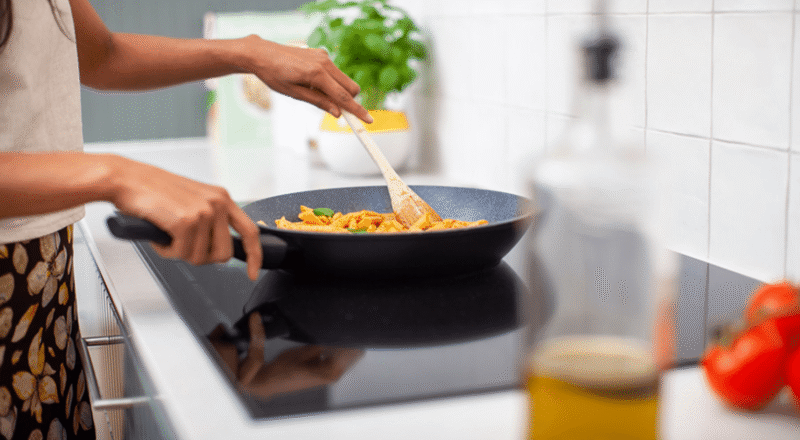Cooking on an induction stove has become increasingly popular due to its efficiency and precision. When it comes to choosing the right cookware, the debate often centers around cast iron vs carbon steel on induction. Both materials have their unique characteristics that make them suitable for induction cooking, but understanding the differences can help you make an informed choice.

Introduction to Induction Cooking
Induction cooking uses electromagnetic fields to heat pots and pans directly. This technology is considered more energy-efficient than traditional gas or electric stoves. To use an induction cooktop, your cookware must be made of a magnetic material, which makes both cast iron and carbon steel excellent candidates.
What is Cast Iron?
Cast iron is a durable material known for its heat retention and even cooking. It is often favored for its ability to maintain consistent temperatures, making it ideal for slow-cooking and frying.
Advantages of Cast Iron
- Superior heat retention
- Durable and long-lasting
- Improves with use through seasoning
Disadvantages of Cast Iron
- Heavier than other materials
- Requires maintenance to prevent rust
What is Carbon Steel?
Carbon steel is similar to cast iron but is lighter and more responsive to heat changes. It is often used in professional kitchens due to its quick heating properties.
Advantages of Carbon Steel
- Lightweight and easy to handle
- Quick heating and cooling
- Versatile in cooking styles
Disadvantages of Carbon Steel
- Requires seasoning like cast iron
- Can warp if overheated
Performance on Induction Cooktops
Cast Iron on Induction
Cast iron performs exceptionally well on induction cooktops. Its magnetic properties ensure efficient heat transfer, and it remains stable on the smooth surface of the cooktop. For more on using cast iron with induction, read about how to season cast iron after induction use.
Carbon Steel on Induction
Carbon steel also works well on induction stoves. It heats up quickly, which is great for fast cooking tasks. However, it requires careful handling to prevent warping. Learn more about vintage cast iron on modern induction cooktops.
Comparing Heat Retention
When comparing heat retention, cast iron holds an advantage. It absorbs and retains heat more effectively than carbon steel, which can be crucial for recipes that require steady temperatures.
Maintenance and Care
Maintaining Cast Iron
Maintaining cast iron involves regular seasoning to protect against rust and enhance its non-stick properties. You can read about how to avoid scratches when using cast iron.
Maintaining Carbon Steel
Carbon steel also requires seasoning, but it can be more susceptible to rust if not dried thoroughly after washing.
Which is More Versatile?
Both materials offer versatility, but carbon steel is often preferred for tasks requiring quick temperature changes, like sauting or stir-frying.
Price Considerations
Cast iron tends to be more affordable, especially for vintage pieces. In contrast, high-quality carbon steel pans can be more expensive.
Environmental Impact
Both materials are eco-friendly when compared to non-stick alternatives. They are long-lasting and recyclable, reducing the need for frequent replacements.
Conclusion: Making the Right Choice
The choice between cast iron vs carbon steel on induction depends on your cooking style and preferences. If you value heat retention and durability, cast iron may be your best bet. However, if you prefer lighter cookware and quick temperature adjustments, carbon steel is the way to go. For more insights, here’s an article on whether induction cooktops work with different types of cookware.

FAQs
Can I use cast iron on induction cooktops?
Yes, cast iron is highly compatible with induction cooktops due to its magnetic properties.
Is carbon steel lighter than cast iron?
Yes, carbon steel is typically lighter than cast iron, making it easier to handle.
Do I need to season carbon steel cookware?
Yes, like cast iron, carbon steel requires seasoning to prevent rust and maintain its cooking surface.
This article contains affiliate links. We may earn a commission at no extra cost to you.

